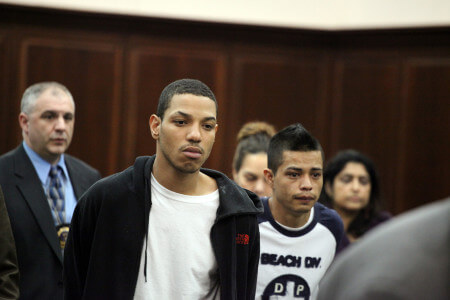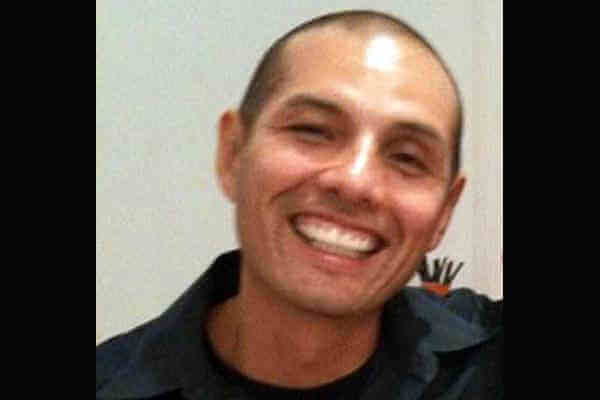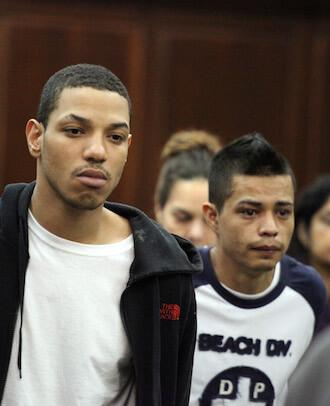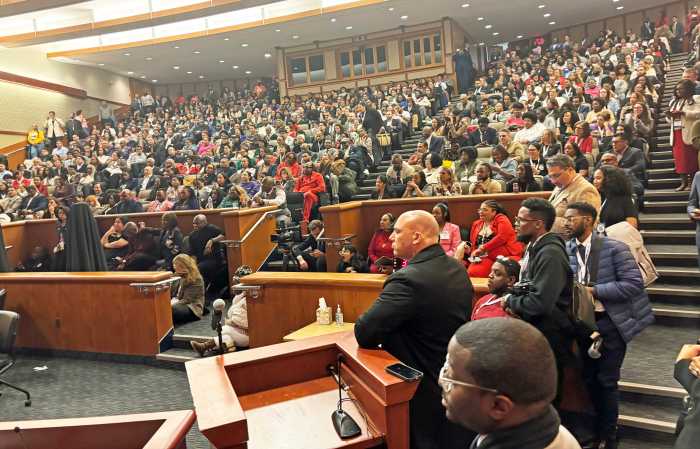Call it a tale of two trials. Both involved younger gay men accused of killing an older gay man. In one, the defense was that the death occurred during rough sex. In the second, the defense wanted to use that story, but was barred by the judge. The outcomes were very different.
After first telling police that he killed Edgard Mercado in self-defense, Davawn Robinson, now 28, changed his story. On the witness stand at his 2011 trial, he said he accidentally strangled Mercado to death in the 39-year-old gay man’s East Village apartment during kinky sex. After jurors failed to reach a verdict, a mistrial was declared. Jurors told Gay City News then that Robinson was “not believable,” one said, but another told the newspaper, “There was a sexual environment, but it was not clear what that meant.”
At his retrial in 2012, jurors heard the same evidence and again weighed second-degree murder, manslaughter, and criminally negligent homicide, which carry sentences ranging from 25-to-life, up to 15 years, and up to four years in prison, respectively. The prosecution wanted a murder conviction, and the defense wanted a guilty verdict on criminally negligent homicide. The Manhattan jury convicted Robinson of manslaughter after deliberating for a day.
Ability to mount a kinky sex murder defense might have been pivotal
Robinson had his first parole hearing in 2013 and will have additional hearings every two years. If he cooperates with state prison rules, he is eligible for a conditional release in 2019.
At the 2015 trial of Edwin Faulkner, 33, and Juan Carlos Martinez-Herrera, 30, the gay couple who killed John Laubach in 2012, jurors never heard the story that Faulkner told police — Laubach died accidentally as he choked him while the 57-year-old gay man performed oral sex on Martinez-Herrera. The prosecution never introduced Faulkner’s statement, choosing instead to rely on two short admissions to the killing by the defendants as well as other evidence.
The couple killed Laubach in his Chelsea apartment, robbed the apartment, and fled to Florida where they were arrested roughly two weeks after Laubach was found dead.
The defense wanted to discuss Laubach’s two suicide attempts, his treatment for depression, his HIV status, some science that links depression to paraphilias, such as erotic asphyxiation, and that the death occurred during rough sex. Without Faulkner’s statement, Bonnie Wittner, the judge in the case, barred a kinky sex defense and dismissed the rest of what the defense hoped to introduce as prejudicial.
“You can’t argue from evidence that’s not in the case,” said Daniel C. Richman, a professor who teaches criminal procedure at Columbia Law School, who was not involved in the trial.
Wittner maintained her position on the defense requests even after Paul Bridgewater, a prosecution witness and a friend of Laubach’s, told jurors that Laubach had AIDS and after Martinez-Herrera testified late in the trial that “Jack liked to get choked when he sucked my dick.”
Laubach had known the couple for several months before his death and regularly paid them for sex. They had a falling out after Faulkner stole from Laubach. The older man reported to acquaintances that he was afraid of the couple.
On October 19, toward the end of the three-and-a-half week trial in Manhattan Supreme Court, Dr. Mark Taff, a defense expert, was disputing the testimony of a prosecution expert on the cause of Laubach’s death and he began to discuss asphyxia and sex.
“Let’s call it kinky sex,” Taff said, but stopped after an objection from Lanita Hobbs, the assistant district attorney who led the prosecution.
With the jury out of the courtroom, Wittner and Daniel Parker, who represents Martinez-Herrera, had yet another fight over the evidence the defense was allowed to present, with the judge again asserting that no evidence supported a kinky sex defense. Parker pointed to Martinez-Herrera’s testimony.
“That’s evidence of sex,” Parker said. “The record couldn’t be more clear.”
Jurors took about seven hours to find Faulkner and Martinez-Herrera guilty of felony murder, a charge based on them causing Laubach’s death in the course of committing another felony — in this case, robbery and kidnapping — and second–degree manslaughter. Jurors were not given a lower level felony charge, such as criminally negligent homicide, to consider.
Whether Wittner’s limits on the defense will survive an appeal remains to be seen.
“There’s a thumb on the scale, a constitutional thumb on the scale, that argues in favor of the defendant getting to put on a defense,” Richman said. “If you’re asking is this an area where judges should be very careful, the answer is yes.”
Faulkner and Martinez-Herrera were scheduled to be sentenced on December 7, but that was put off until January 20 at the request of both the prosecution and the defense.
A “collective of queer and trans people of color with experiences of homelessness and involvement in the sex trades” is “organizing around the wrongful convictions of Edwin Faulkner and Juan Carlos Martinez-Herrera. Until they are free!,” according to the collective’s website, freeedwinandjuancarlos.com.
Eleven collective members attended the December 7 proceeding and told Gay City News that some members would send letters to Wittner arguing for lenient sentences. To date, the group has raised $541 for the couple on youcaring.com, a fundraising website.




































